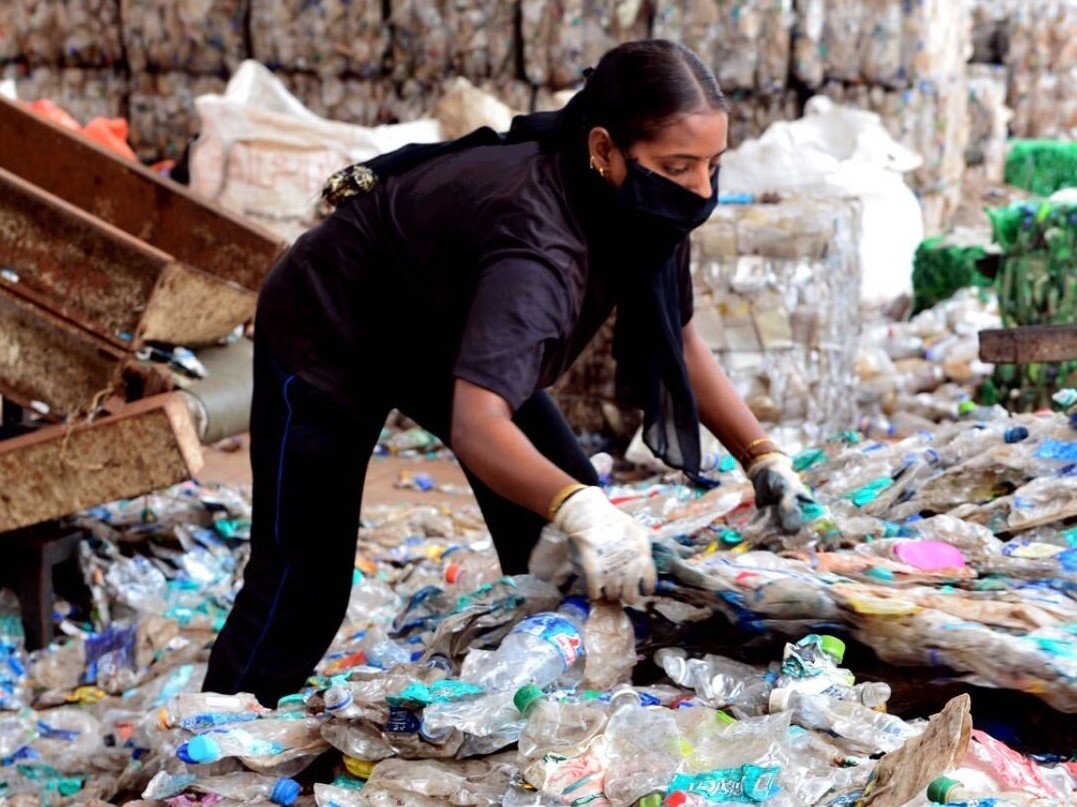You might have heard the term before but maybe you were unsure of its meaning. Well, if you are wondering what does informal economy means? Then read on, you are about to find out!
The informal waste economy
The global waste crisis is accelerating. With waste generation estimated to increase to 3.4 billion tonnes by 2050, the systems that manage this waste have become vital cogs in our social framework. While developed nations have over time created centralized systems for this, most cities in emerging economies still rely on fragmented methods of waste management in what are called informal waste economies. These parallel systems have become indispensable to these nations and yet hardly receive any recognition for their contributions.
ORIGINS
A by-product of the dawn of industrialization in Europe, informal waste economies began with the development of unofficial markets by enterprising scavengers who’d identified raw materials of value in waste streams. With time however, most developed nations pulled the plug on these shadow economies and organized formal authorities to manage this waste effectively.
The rapid urbanization of developing nations however, led to a surge in solid waste generation that its formal systems weren’t equipped to handle. Along with this, the vast migration of unskilled labor to urban areas resulted in many taking up informal work like collecting waste that was beginning to show fiscal value. These two factors bolstered the creation and growth of informal waste economies that exist to this day.
INFORMAL WASTE ECONOMIES TODAY
The players in these parallel economies range from waste pickers to scrap shop dealers and aggregators. Though unregulated and fragmented, the economic incentive of finding value in waste material has led to these informal systems having its own organizational system - with prices dependent on a material’s recycling potential. They scavenge, segregate, aggregate and upcycle waste in systems, and have thereby become the backbone of many recycling structures across the world.
Over time these informal economies have developed into established communities like the kabadiwalas in India, cartoneros in Mexico and catadores in Brazil. In nations like India where over 40% of waste isn’t collected by local authorities, these informal economies have become vital cogs in the functioning of society. Some reports even suggest that in cities like Cairo, they’re better than formal systems at resource recovery - boasting certain advantages in specific urban areas such as slums, where they have the experience and the vehicles to maneuver through.
SOCIAL STIGMA & UNRECOGNITION
Despite having become a fundamental part of the recycling process and serving society by keeping waste out of landfills and oceans, these communities are subject to social stigma, terrible living conditions and in some nations are even labelled as criminals. A major part of why this exists is because their contributions and impact is largely unrecognized and therefore unknown.
Legitimizing this informal sector is a necessary step in remedying this issue. It would give its players a sense of security and dignity, while acknowledging them for their valuable contributions to society - and thereby taking the first step in changing national mindsets. This has seen some success in Brazil where they recognized the work of informal waste collectors, which allowed them introduce schemes to formalize their efforts. But in most nations it's been complicated for authorities to map out these informal systems since they’re small-scale and work under the radar by design.
Policy-level decisions and proper execution of the same, will be necessary to create effective change here. By formalizing these systems, local authorities would benefit incredibly from understanding and adopting the practices of these informal economies that are experienced in being profitable in their handling of waste. It would also solve multiple concerns regarding the unregulated and unchecked nature of this sector by ensuring that collected waste is dealt with responsibly and safely.
WHAT WE DO
At Plastics For Change, we’re helping develop the infrastructure of informal waste economies in India, and eventually across the rest of South Asia. We do this by improving the transparency, efficiency and income opportunities of grass-root plastic recyclers and developing capacity in innovation and engagement strategy for working with the informal waste ecosystem. Through our responsible recycled plastic supply chains, we’re able to ensure that the individuals we work with receive fair incomes and the opportunities needed to build a better future, while our foundation conducts holistic social interventions in their communities and advocates for their cause with local authorities.
We believe that, along with our partners, we can make a significant difference in bringing awareness to the crucial work of the informal waste economy and simultaneously help develop its infrastructure and systems. However, while there are other organizations working in this space, it’ll take a major shift in national mindsets and governmental legitimization for these informal economies to receive it’s well-deserved recognition and start seeing the formalization of its activities.
Sources:
https://wastewise.be/












